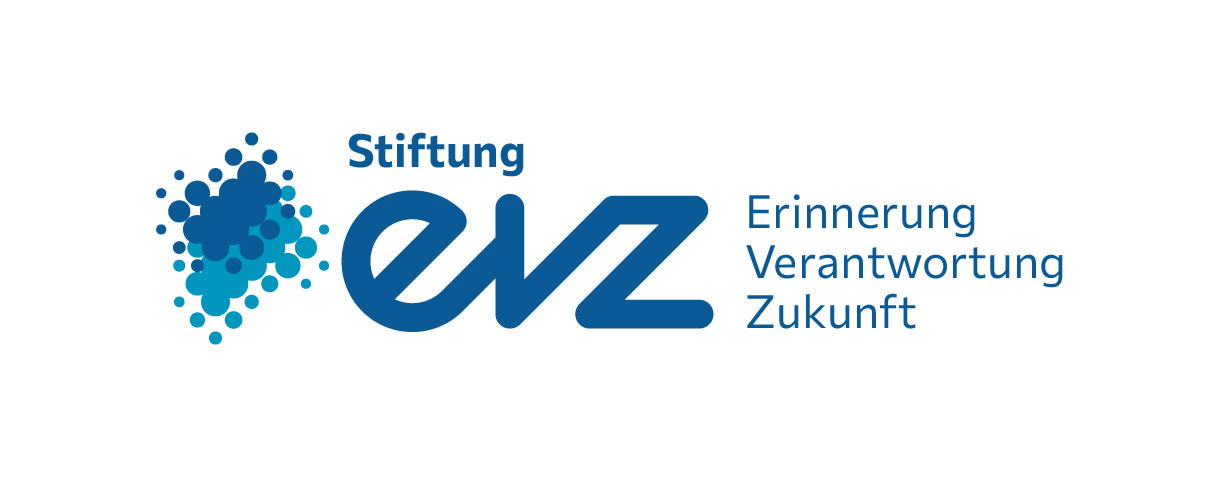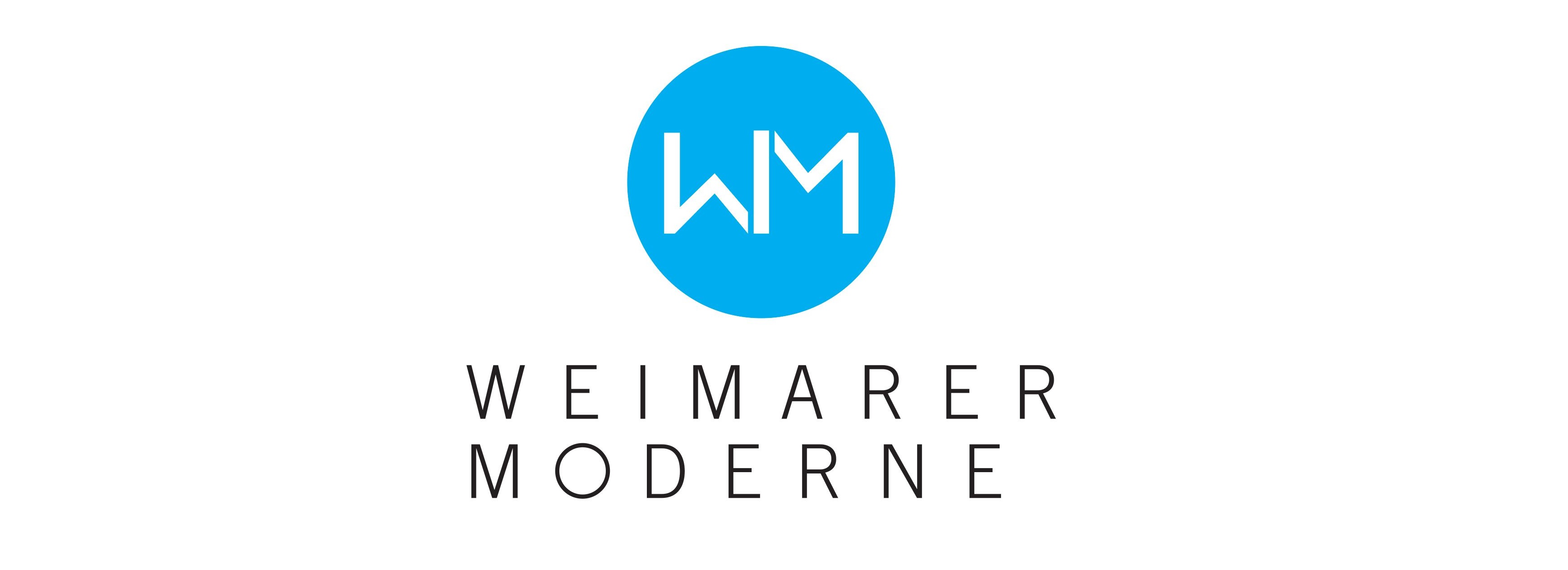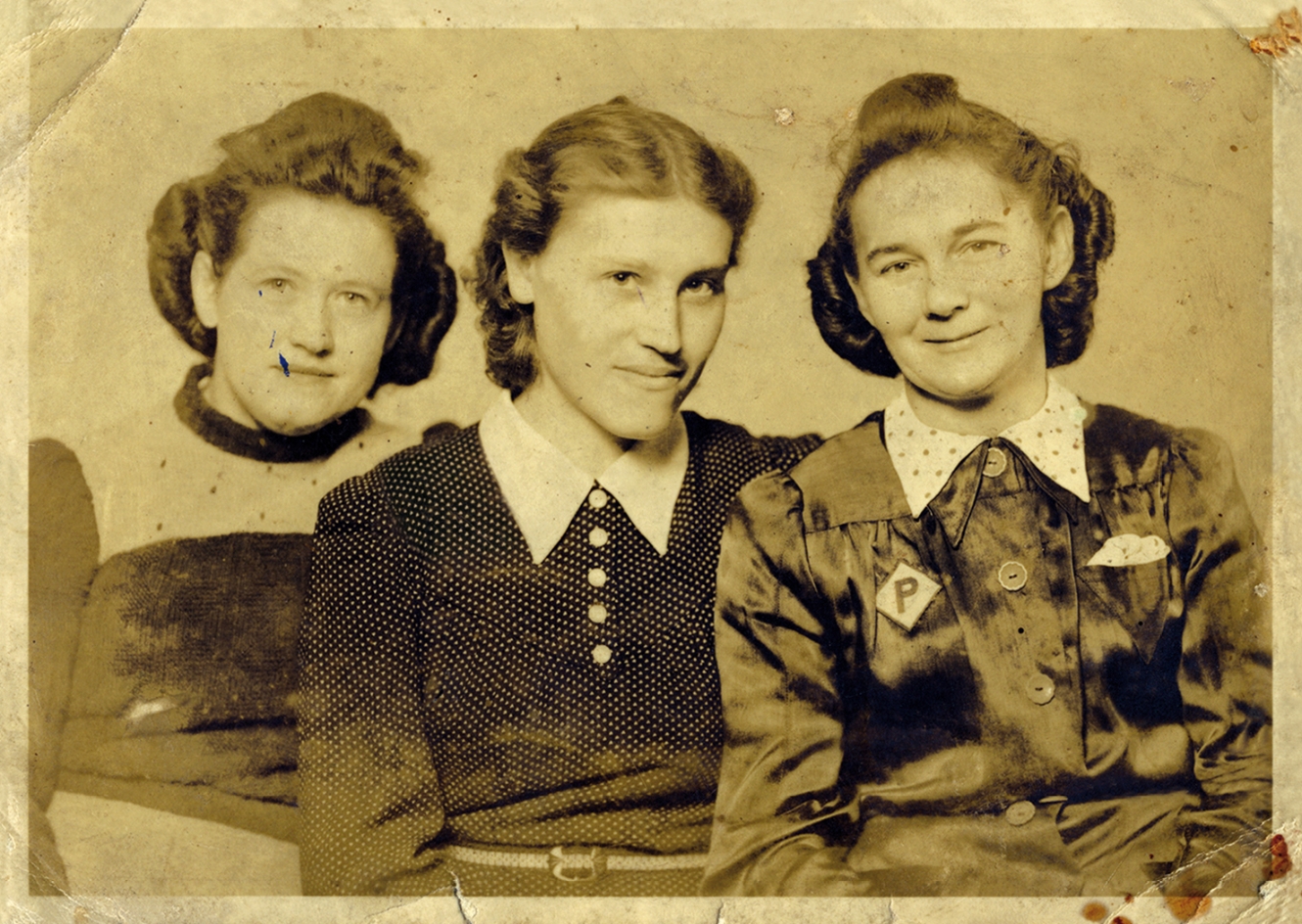
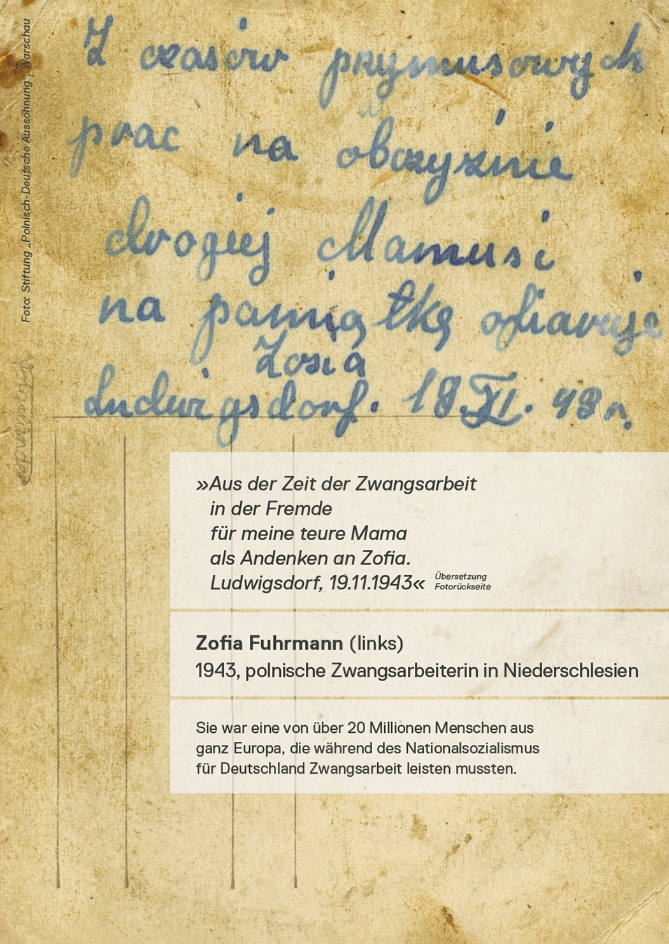
Signs of life like this photograph were an important way of maintaining contact with family. Often sent only with a greeting, they offered a bit of insight into the life of forced laborers. This was the case with Zofia Fuhrman, Wypekło by her maiden name, who sent this group portrait to her mother in November 1943. With the photograph she demonstrated that she was not alone "in a foreign land." Her greetings directly mentioned the forced labor. One of her colleagues is clearly wearing a badge with the letter "P" (for Pole) on her clothing. This is an insignia that all Polish forced laborers had to wear.
Zofia Fuhrmann was born in 1921 in Tomaszewo (approx. 50 km east of Poznań), Poland. In 1942 she was deported to Ludwigsdorf in Lower Silesia (today Ludwikowice Kłodzkie in Poland). There she had to perform forced labor for the weapons factory Verwartungsgesellschaft für Montanindustrie GmbH. A satellite camp of the Groß-Rosen concentration camp was located in Ludwigsdorf and was most certainly known to Zofia Fuhrmann.
Additional photographs bearing dedications and exchanged between Zofia Fuhrmann and fellow forced laborers indicate that the women were friends, given to the warmth of the messages. On the photograph Zofia presents herself to her mother in work clothing, giving further indication of the harsh living conditions. The fact that most of her photographs were taken in photo studios leads to the conclusion that Zofia did not own a camera herself (which was forbidden to Poles). For these photographs she had to pay a high price—in relation to her meagre pay.
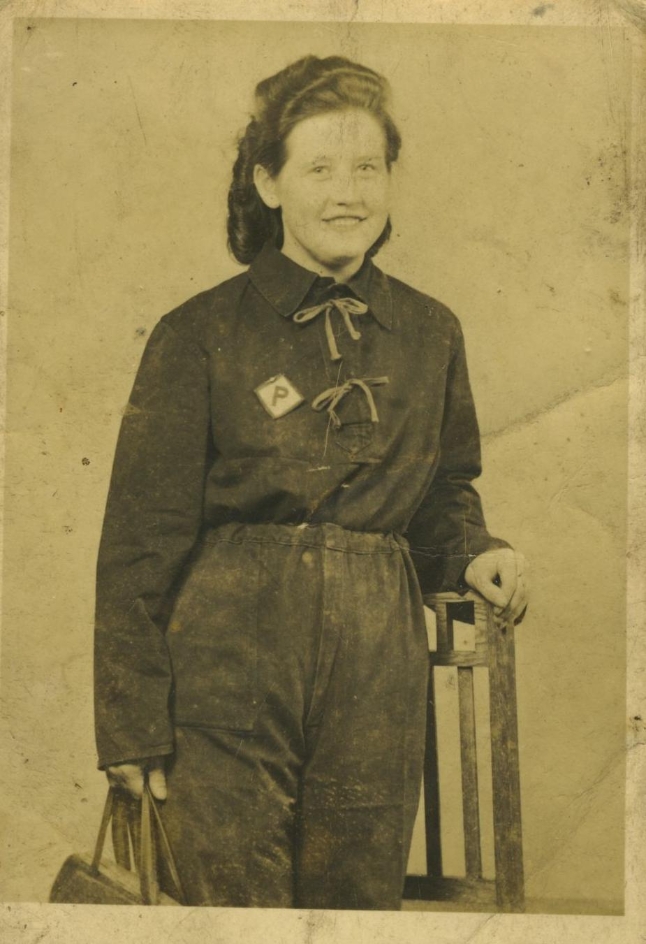
Zofia Fuhrmann sent this photo of herself in work clothes to her father in Poland as an "eternal souvenir". ©Stiftung „Polnisch-Deutsche Aussöhnung“, Warschau
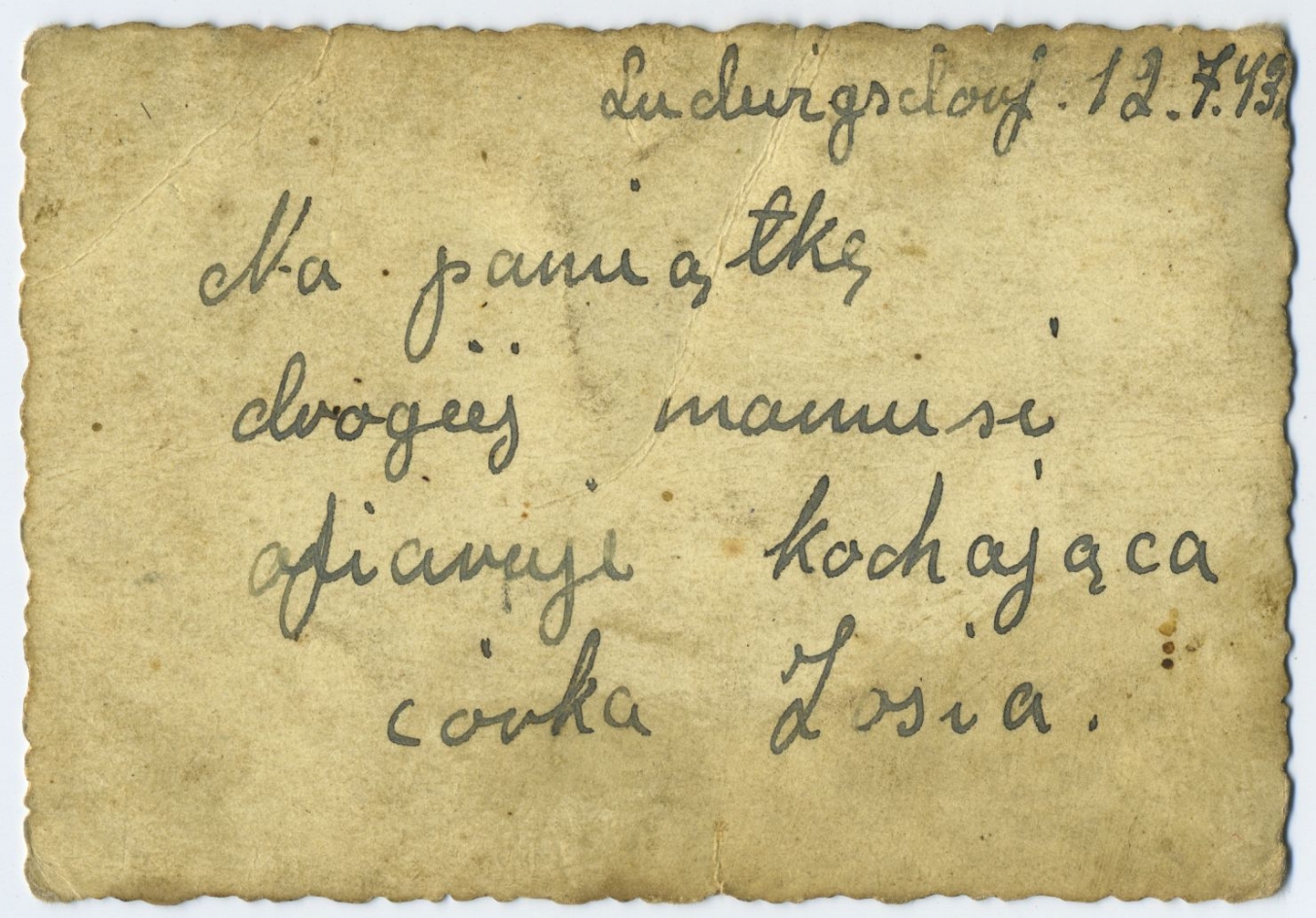
Zofia Fuhrmann sent this photo of herself in work clothes to her father in Poland as an "eternal souvenir".
©Stiftung „Polnisch-Deutsche Aussöhnung“, Warschau
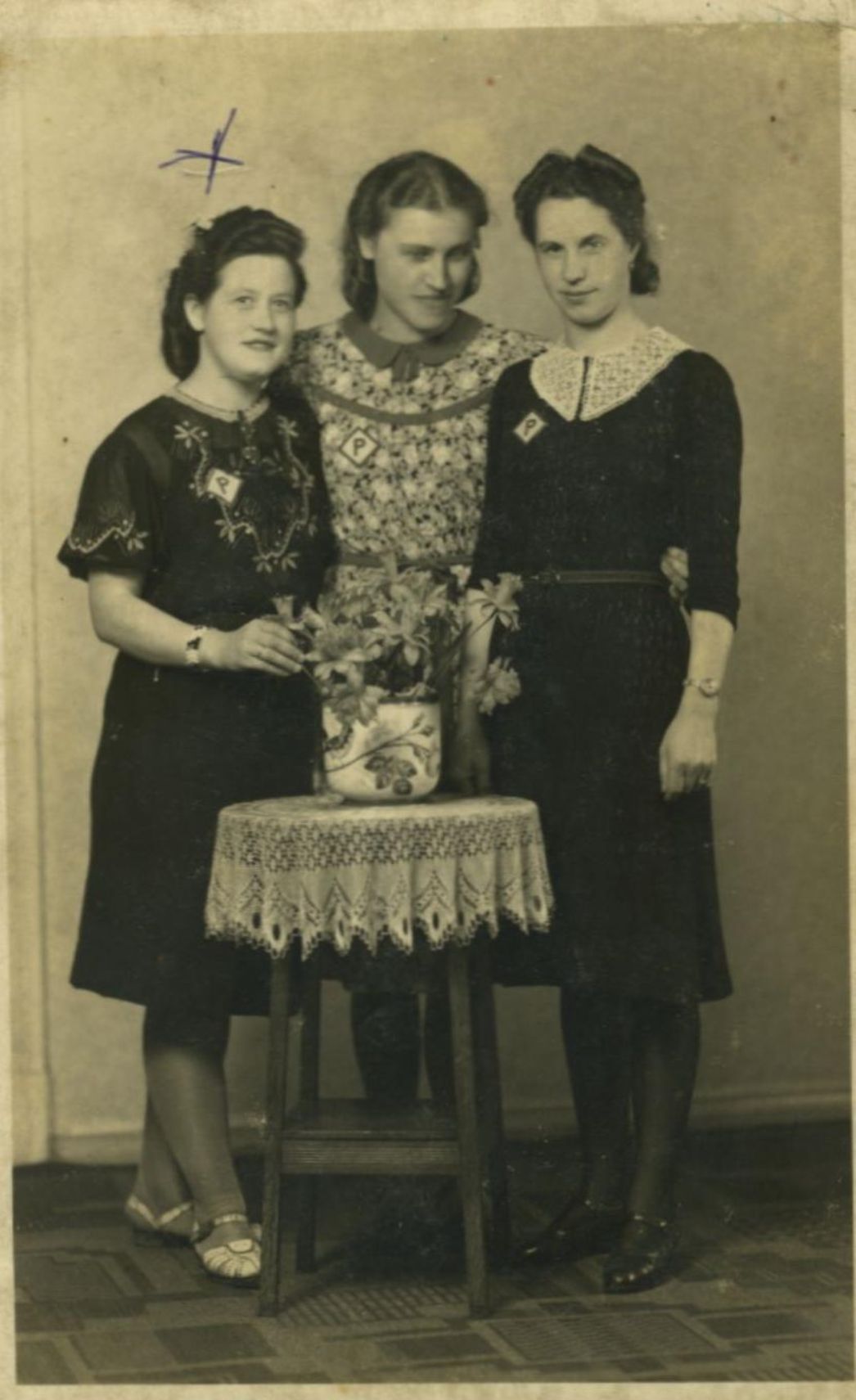
Zofia Fuhrmann (left) had her photo taken with her friends in the photo studio. "Polenabzeichen" were sewn onto the women's clothes. ©Stiftung „Polnisch-Deutsche Aussöhnung“, Warschau
She was one of over 20 million people from all over Europe, who had to perform forced labor for Germany under National Socialism.



